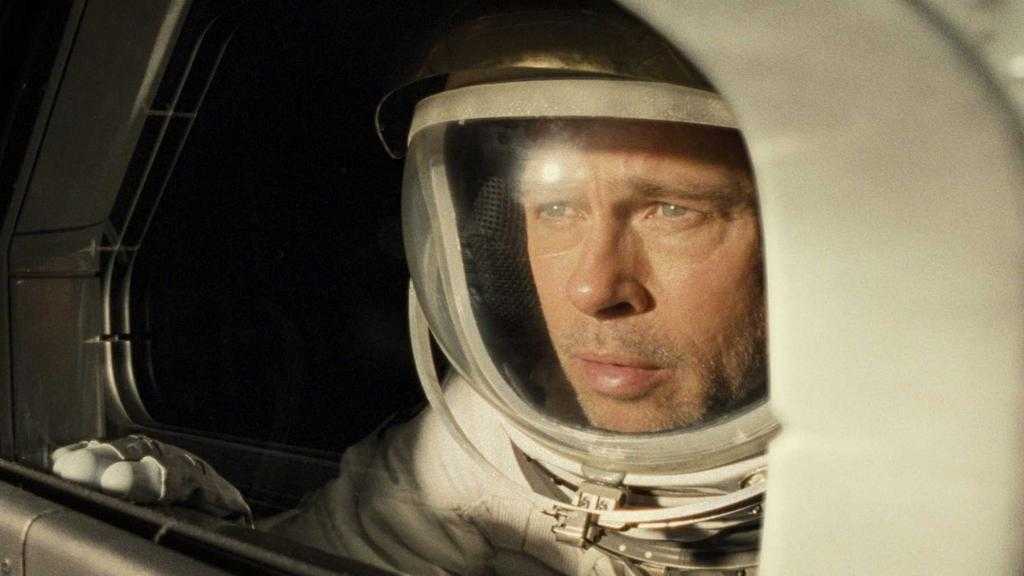In the same year that NASA commemorated the 50th anniversary of the Apollo 11 moon mission, it’s only fitting that one of the most spectacularly realistic portrayals of space is brought to life on the big screen. Brad Pitt is utterly captivating in this pensive existential tale, which will undoubtedly divide viewers. Yes this film isn’t for everyone; the focus on the technical feat over a narrative driven approach will definitely alienate some, yet it’s undoubtedly a breathtaking, if somewhat pretentious, piece of cinema.
Directed by James Gray, Ad Astra follows astronaut Roy McBride (Brad Pitt) on his classified mission across the solar system in search of his long lost father, revered astronaut Dr Clifford McBride (Tommy Lee Jones) and the truth behind the doomed project Lima. Following a series of disastrous electrical surges that threatens life on Earth, U.S. intelligence believe the source of the energy originates from Neptune and Clifford’s search for artificial intelligence, entrusting Roy to seek his father and destroy the origin of the surge to save humanity.
Gravity, First Man and now Ad Astra all follow in a similar vein; the films are all deep psychological studies into each protagonist, exploring themes of survival and loneliness throughout their journeys. Director Gray favours drama and exploration over the sci-fi elements of the genre, delving into the central father-son relationship and how “sons suffer the sins of fathers” as explained through Pitt’s pensive and melancholic monologuing. The age old question of whether we’re truly alone in the universe is also at the film’s core. It’s deep, soul searching stuff, set against the backdrop of space, which really does have you gripped right till the very end. But unfortunately for me, that end ultimately fell short of expectations.
Gosling’s Armstrong and Pitt’s McBride in particular share a stoic, detached nature, reflective of the occupation. This really is one of Pitt’s finest performances, the transformation he undergoes is truly impressive. McBride is the best of the best; his heart rate never rises above 80, keeping his focus and composure on the mission throughout each extreme scenario. Yet the closer he gets to Pluto and the fact that he might be reunited with his long lost father completely changes him, emotion starts to creep across his once calm face as he has to face his personal demons. The effects of his father’s abandonment, his one real childhood hero, has been felt ever since, particularly in his failed relationship with with Liv Tyler’s Eve McBride (once again very underused), due to his emotional distance and brooding detachment. Legacy and toxic masculinity join the ranks of themes explored in the affecting third act of the film.
Existential and psychological notions aside, Ad Astra is possibly the most visually stunning spectacle I’ve seen in a while. There are a number of truly impressive action sequences, with the dizzying and explosive opening sequence, to the thrilling and deadly vehicle chase on the moon with space pirates. The film also doesn’t shy away from the terror of space, with a particularly tense and shocking scene standing out. I really do implore you to see this film on the biggest IMAX screen possible, it’s an impressively immersive experience thanks to the stunning (and almost Kubrickian) cinematography from regular Nolan collaborator Hoyte van Hoytema and a mesmerising score from Max Richter. I was completely and utterly transported into the terrifying yet beautiful depths of space.
Overall, Ad Astra is a visual cinematic masterpiece, yet considering the deep delve into themes such as life and legacies, it unfortunately doesn’t have all that much to say. It’s an ambitious film that’s all about the experience and journey, with the story taking a backseat in the closing sections. If you’re a fan of Interstellar and 2001: A Space Odyssey, this is definitely one for you.




